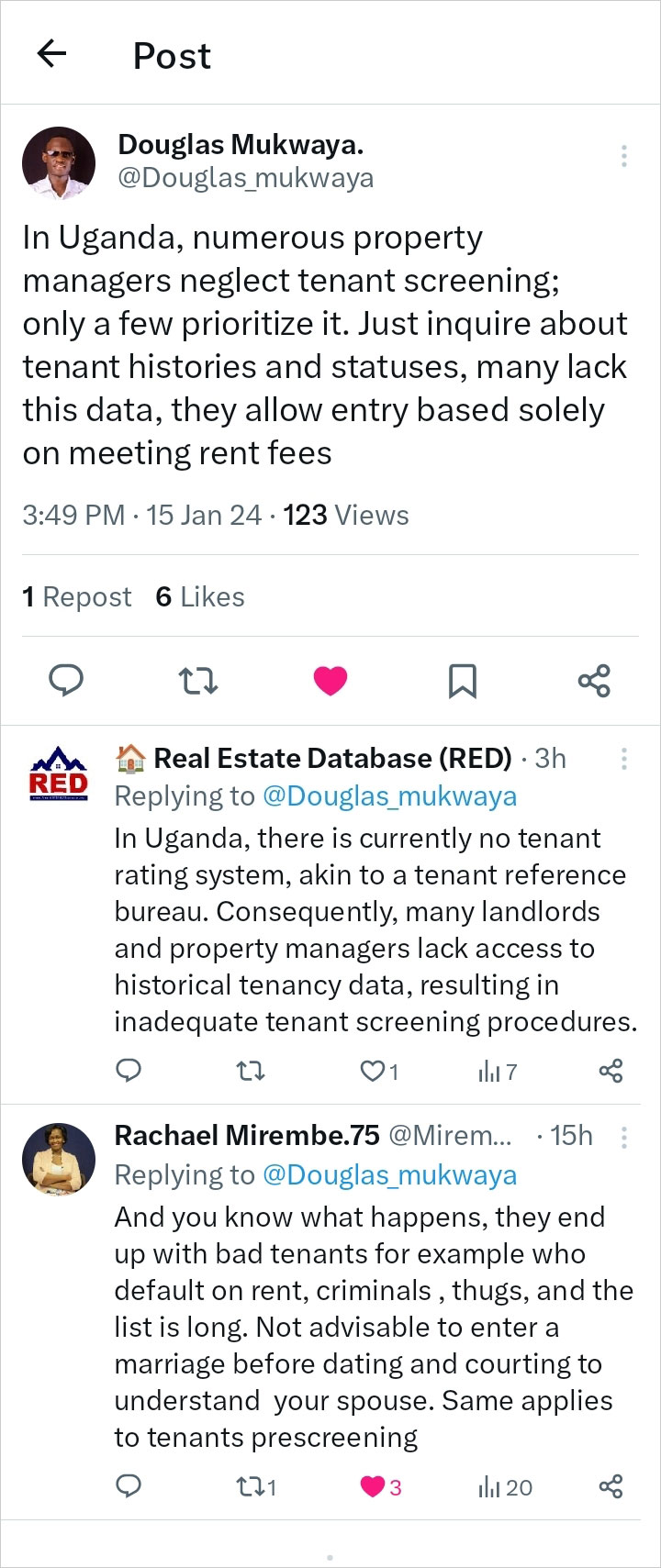When it comes to renting out a property, it's crucial for landlords and property managers to find reliable and responsible tenants. One of the most effective ways to achieve this is through tenant screening. Tenant screening is a process that helps property owners assess the suitability of potential renters by evaluating their financial stability, rental history, and overall reliability. In this blog, we will delve into the essential aspects of tenant screening, providing a comprehensive guide to understanding how it works.
Application and Personal Information: The first step in tenant screening is obtaining a rental application from prospective tenants. This application typically includes personal details such as the applicant's full name, contact information, employment details, and references. Gathering this information allows landlords to begin the screening process and establish initial contact with the potential tenant.
Credit Check: One of the fundamental aspects of tenant screening is conducting a credit check. Landlords assess the creditworthiness of applicants by reviewing their credit reports and scores. This helps determine how responsible individuals have been in managing their financial obligations in the past. A good credit score often indicates a reliable tenant who is likely to pay rent on time.
Employment and Income Verification: Stable employment and a consistent income are important factors for landlords. Verifying an applicant's employment status and income level provides assurance that they have the means to pay the rent regularly. Typically, landlords request recent pay stubs or employment verification letters to confirm these details.
Rental History: Evaluating an applicant's rental history offers valuable insights into their behavior as a tenant. Landlords often contact previous landlords or property managers to inquire about the applicant's payment history, lease compliance, and general conduct as a renter. This information helps gauge the applicant's suitability as a tenant and identifies any potential red flags.
Criminal Background Check: To ensure the safety and security of their property and existing tenants, landlords often perform a criminal background check. This check helps identify any criminal records or convictions that could pose a risk to the property or other tenants. It is important to ensure compliance with local laws and regulations regarding the use of criminal records in tenant screening.
Eviction History: Screening for eviction history provides crucial information about an applicant's past rental experiences. Landlords can access eviction records to determine if an individual has been evicted in the past or has a history of late payments or lease violations. This helps landlords make informed decisions and reduce the risk of potential issues with future tenants.
Reference Checks: Contacting personal and professional references provided by the applicant can provide valuable insights into their character, reliability, and overall suitability as a tenant. Speaking with references can help confirm the applicant's claims, understand their lifestyle, and assess their ability to maintain a positive relationship with neighbors and landlords.
Fair Housing Laws and Compliance: Throughout the tenant screening process, it is crucial for landlords to adhere to fair housing laws and regulations. These laws prohibit discrimination based on factors such as race, color, religion, sex, familial status, national origin, and disability. It is essential to treat all applicants fairly and equally, ensuring that the screening process does not violate any protected rights.
Conclusion: Tenant screening plays a vital role in ensuring that landlords find reliable and responsible tenants for their properties. By carefully evaluating an applicant's financial stability, rental history, employment status, and conducting background checks, landlords can make informed decisions while mitigating risks. It is important to follow legal guidelines and fair housing laws to ensure a fair and unbiased screening process. Ultimately, tenant screening helps create a safe and secure environment for both landlords and tenants alike.
Kind Regards
Julius Czar
Author: Julius Czar
Company: Zillion Technologies Ltd
Mobile: +256705162000 / +256788162000
Email: Julius@RealEstateDatabase.net
Website: www.RealEstateDatabase.net
App: Install the RED Android App